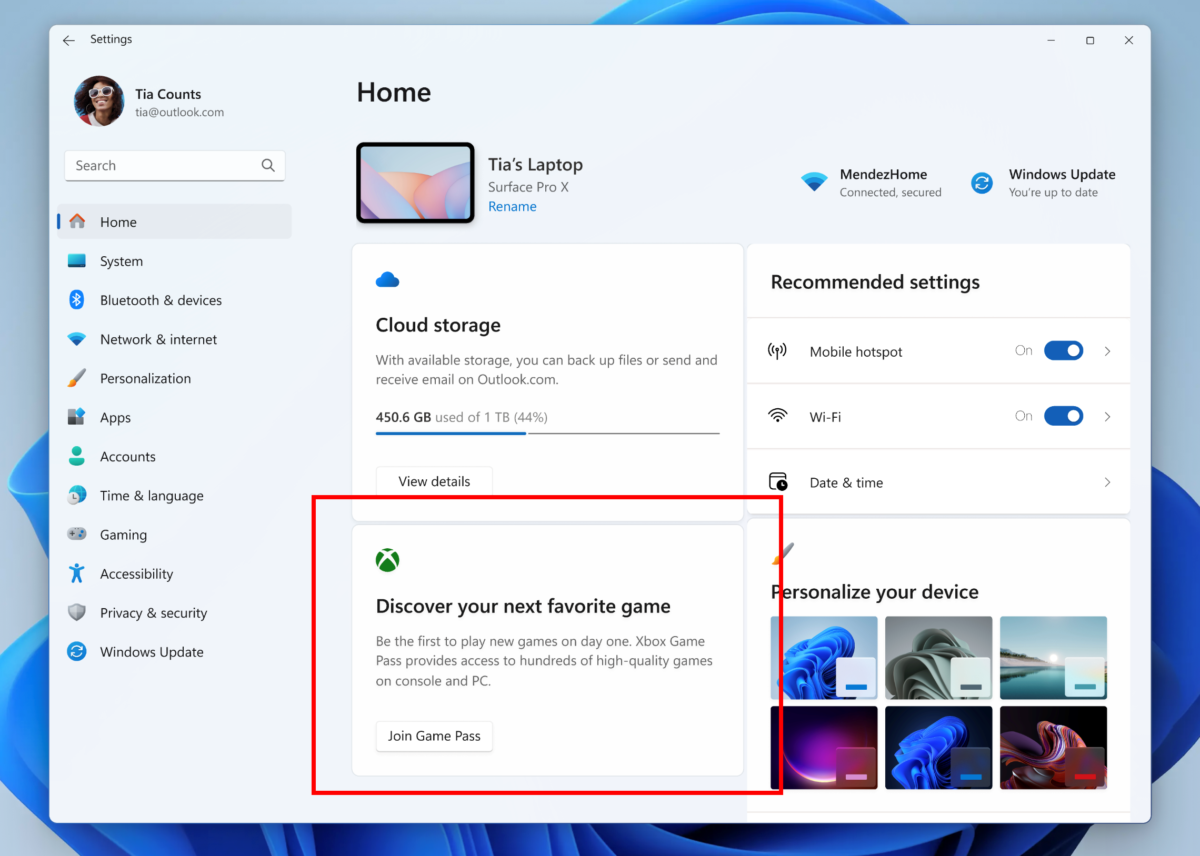Windows 11 is now an ad platform--this is why we're here
Windows 11 is now an ad platform--this is why we're here

www.ghacks.net
Microsoft is testing Game Pass ads on the Settings homepage - gHacks Tech News

The writing is on the wall--I suspect the next Windows OS will be a subscription service. Gather your ISOs while ye may.